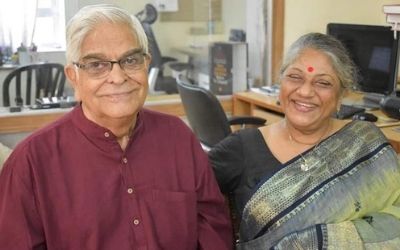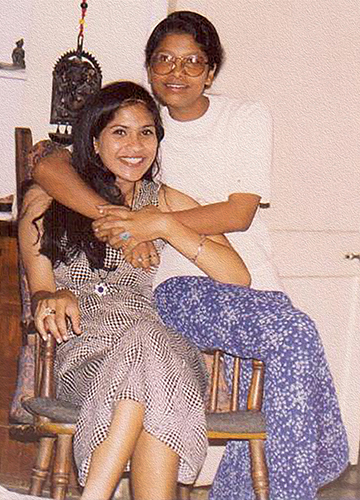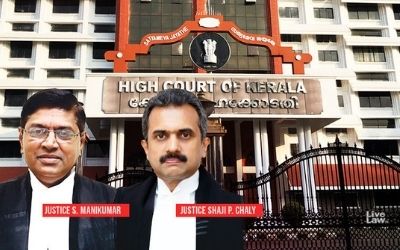May 3, 1999—it was not a regular Monday for 17-year-old Durva Bhasin. While her classmates were headed to school, she was off to her Kathak practical exam. It was a morning of preparation and mental rehearsal of the intricate footwork, fast pirouettes, graceful movements and exquisite expressions. She also had stories to tell as this dance form is attributed to the travelling bards of ancient northern India known as ‘kathakars’ or storytellers. But little did she know that her stories would not be heard that day. The dancing storyteller was hit by a school bus on her way; her stories forever silenced. It was too late before she got help; she succumbed to injuries. According to her family, it was a case of hit and run.
“Nobody helped her; nobody called 108,” says Durva’s mother Dr Mridul Bhasin. “The school bus (on contract) was being driven by a government driver who had joined back that very day after being suspended for drunk driving. Neither did the driver nor the teachers stop to help her.” That morning, the Bhasin family—Pramod and Mridul, and their elder child Shantanu—saw a vibrant teenager go from “full of life” to lifeless. However, the devasted family embraced the true essence of making beauty from the ashes. This thought birthed Muskaan—an NGO that promotes road safety. “We were very sceptical as the demise of our daughter had totally upturned our normal life; we were clueless at that point,” says Mridul. “It was our daughter’s teacher Sandeep Sethi who suggested the idea of this NGO to us as he had also experienced the loss of many of his loved ones in road accidents.”
Though a personal tragedy catalysed the foundation, Muskaan is not a family trust. It is a registered not-for-profit trust committed to building a culture of safety on roads through awareness, education, training and advocacy. It was registered as a charitable trust in 2001. Mridul left her job as manager of public relations at an ITC hotel in Jaipur to devote all her time for the NGO. Even Pramod, who runs a value-added stone business, diverted his attention to Muskaan. “We realised the issue of road safety needed full attention and it now gives us immense satisfaction to be working for a multifaceted issue. The word ‘road safety’ is not so alien now,” said Mridul. “Durva was an ever-smiling girl, sensitive about other people’s pain. We named the NGO Muskaan after our daughter to keep her spirit alive and to see other people smile.”
The Jaipur-based NGO looks at training, capacity building, awareness generation, community-based programmes, advocacy for ignored issues related to traffic, transport and road safety. It also drives policy—like the Good Samaritan Law which still remains unacknowledged at government and public levels—and audits of roads and road safety-related issues. “We regularly organise road safety activities including training programmes for all stakeholder department personnel like police, teachers and youth in educational institutes and general public, advocacies and campaigns,” Mridul says. “Ours is the oldest NGO working in this field, however, we could do better to make our work known.”
Muskaan employs professionals in social service, road safety and IT. Although they are based in Jaipur, Rajasthan, the NGO takes up projects in other states as well. “We believe in multitasking which means taking care of training, advocacies, projects, and social media outreach as per the need of the organization. All office employees double as trainers too. My husband and I work full time and Shantanu, our son, devotes about three to four hours every day,” says Mridul.
According to her, there is no streamlined or institutionalized funding in the domain unlike with other social issues like women, girl child and environmental problems. “Road safety still remains ignored at all levels. However, the ministry of road transport and highways has started giving seed money and corporates have now begun to consider road safety as a part of its CSR activities. Our NGO survives on these things,” she says.
Muskaan has also designed—with inputs from Jaipur Traffic Police, road safety experts and eminent educationists—an interactive curriculum on road safety to be taught to schoolchildren in Jaipur. The age-specific curriculum covers students from playgroups and of Classes I to XII. The NGO also organises campaigns in collaboration with the Traffic Police team. Roadshows form another part of its road safety awareness programme; it comprises street plays, songs by folk singers, puppet shows and performances by street magicians.
In November 2020, on the occasion of the UN World Day of Remembrance for Road Traffic Victims, Traffic Police Jaipur, Muskaan Foundation for Road Safety, Mohan Foundation and Jaipur Citizen Forum and Neuro Trauma Society Rajasthan along with bereaved family members paid a floral tribute at Yaadgar Jaipur Police Headquarters to those who had succumbed to road accidents. Right before the event, Muskaan volunteers conducted an on-road campaign under the supervision of the traffic police, holding placards with safety messages at the Ajmeri Gate crossing.
Mridul believes the surge in the number of road accidents nationwide is due to “utter lack of civic sense and an overall culture of slackened attitude among road users.” She feels the government is just beginning to be aware of the high fatality rate on Indian roads (11 percent of worldwide fatality is borne by India). “Lack of fast emergency response and technological interventions to minimize human contact, apathetic professional attitudes towards issues like license, bad roads, potholes, need for training and accountability issues are some of the main reasons for the increase in a fatality,” Mridul says.
According to Pramod, it is pivotal to make our road network safer. “While the novel coronavirus claimed 2,250 lives during the period April to November, 2020, there were 5,720 accident deaths on the roads of Rajasthan,” he says.
India has one percent of the world’s vehicles but accounts for six percent of the world’s road traffic accidents, according to a 2018 World Health Organization report. Though India’s traffic laws are strict, the big question is, are they enforced efficiently? That is where NGOs like Muskaan step in to raise awareness. The pandemic may have slowed down their work but with creative plans and road safety ideas in their kitty, the NGO is looking at newer strategies to sensitize people. Now, that is something to smile about.
Source: https://www.theweek.in/theweek/specials/2021/04/15/how-a-tragic-death-birthed-this-ngo-promoting-road-safety-awareness.html



